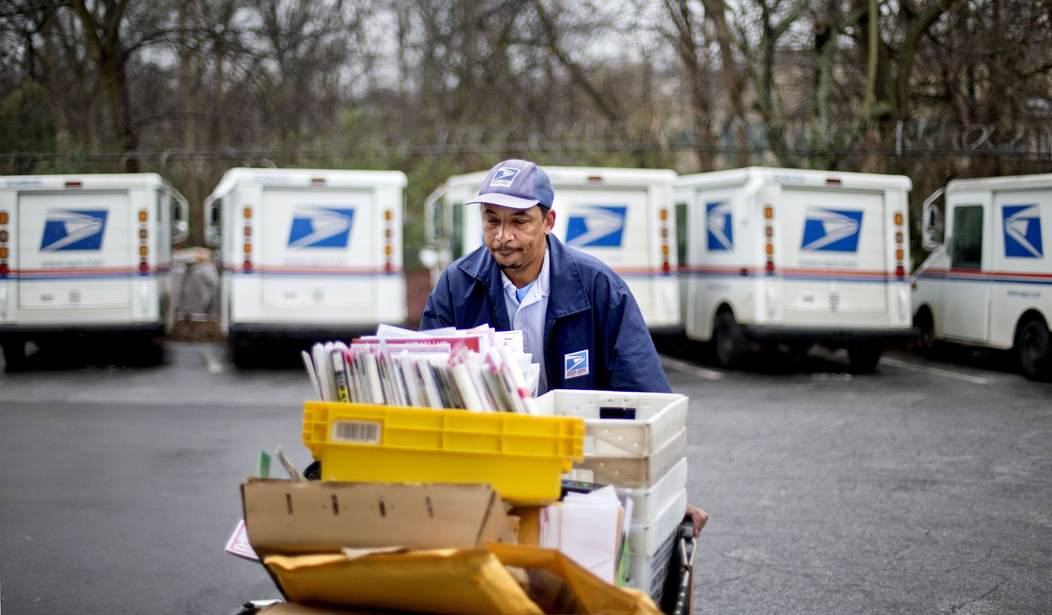The state of the United States Postal Service (USPS) is not good. The agency is hemorrhaging resources, losing $1.5 billion in the first quarter of 2019 on top of $3.9 billion in net losses for 2018. This financial malaise has many causes, but the USPS’ system of reselling stamps far below regular prices via shady middlemen certainly didn’t help.
Fortunately, the situation just got a tad less dire with the USPS discontinuing their partnership with leading reselling middleman Stamps.com on February 21. This announcement came after it became clear that the “partnership” was lopsided and would only grow more lopsided as time went on. To be sure, there were many missed opportunities and zig-zags before the USPS rightly decided to call it quits. But this important first step toward reform shows that beleaguered agencies are in fact capable of stopping reckless programs and spending dead in their tracks. And given a government run amok and $22 trillion in debt, now is the time for agencies to put their collective foot down and demand more accountability for taxpayers.
On February 21, stock traders watched a total implosion: Stamps.com shares halved in value, as the company tried to spin the end of their USPS partnership as a pivot to other partnerships. But it’s hard to deny that Stamps.com had a pretty sweet deal during their exclusive partnership with the USPS. It’s even harder to deny that this deal was completely lopsided, depriving the agency of hundreds of millions of dollars while enriching Stamps.com.
Since the early nineties, the USPS has been running a “postage reselling” program, through which approved companies with high shipping volumes can buy postage at cheaper rates to take advantage of economies of scale. As long as these middlemen companies reserved those cheaper rates for bulk postage buyers (businesses that ship thousands of products each day), this sort of pricing system would ensure smooth sailing and even bring new consumers into the USPS’s fold. Except that these approved companies (mainly Stamps.com) sold super-cheap postage at a markup to small buyers, and kept the difference as profit.
Recommended
A 2017 investigation by Capitol Forum found that postage resellers (the largest of which is by far Stamps.com) sold stamps and labeling to vendors that didn’t meet the USPS’s volume requirements. Similarly, a 2017 IG report found that postage resellers were routinely selling postage that didn’t match up with their packages’ volume and/or distance traveled. As a result, reselling giants such as Stamps.com continue to rake in consumers and hundreds of millions of dollars in revenue, while the USPS loses hundreds of millions of dollars from inappropriate pricing.
The Taxpayers Protection Alliance (TPA) brought further attention to these issues in a report last month on USPS mismanagement, finding that the reselling program was costing the agency at least $235 million annually. TPA further raised the issue at the USPS Board of Governors meeting in Columbus, Ohio on February 8. Pressure from groups such as TPA and the Capitol Forum were key in USPS ultimately backing away from their Stamps.com partnership, but ultimately it was the company itself that flew far too close to the sun. Reports indicate that in recent negotiations with the agency, Stamps.com wanted to retain their current sweetheart deal and end their exclusivity with the USPS. Fortunately, the Postal Service realized that they were getting the short end of the stick and rejected the terms.
Just saying “no” to outrageous terms with private companies is something that other agencies can stand to learn from. The Department of Defense, for instance, is currently investigating a potential conflict of interest related to its bloated, $10 billion cloud contract (which ostensibly favors Amazon Web Services). The rise of no-bid contracts in general raises the disturbing prospect that contractors are getting better deals than they deserve. Ultimately, one small step by the USPS isn’t going to fix anti-competitive conditions that hamper many of the federal government’s relationships with private companies. But it’s a start, and taxpayers should be grateful for the effort.

























Join the conversation as a VIP Member